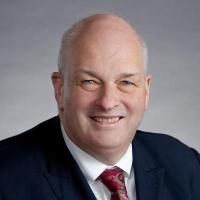Adult Spinal Deformity Knowledge in Orthopedic Spine Surgeons: Impact of Fellowship Training, Experience, and Practice Characteristics.
Date
2018-01
Journal Title
Journal ISSN
Volume Title
Repository Usage Stats
views
downloads
Citation Stats
Abstract
STUDY DESIGN:Survey study. OBJECTIVE:The purpose of this paper was to assess the level of adult spine deformity (ASD) knowledge among orthopedic spine surgeons and identify areas for improvement in spine surgery training. SUMMARY OF BACKGROUND DATA:ASD is increasingly encountered in spine surgery practice. While ASD knowledge among neurosurgeons has been evaluated, ASD knowledge among orthopedic spine surgeons has not previously been reported. METHODS:A survey of orthopedic spine surgeon members of North American Spine Society (NASS) was conducted to assess level of spine surgery training, practice experience, and spinal deformity knowledge base. The survey used was previously completed by a group of neurologic surgeons with published results. The survey used 11 questions developed and agreed upon by experienced spinal deformity surgeons. RESULTS:Complete responses were received from 413 orthopedic spine surgeons. The overall correct-answer rate was 69.0%. Surgeons in practice for less than 10 years had a higher correct-answer rate compared to those who have practiced for 10 years or more (74% vs. 67%; p = .000003). Surgeons with 75% or more of their practice dedicated to spine had a higher overall correct rate compared to surgeons whose practice is less than 75% spine (71% vs. 63%; p = .000029). Completion of spine fellowship was associated with a higher overall correct-answer rate compared to respondents who did not complete a spine fellowship (71% vs. 59%; p < .00001). CONCLUSIONS:Completion of spine fellowship and having a dedicated spine surgery practice were significantly associated with improved performance on this ASD knowledge survey. Unlike neurosurgeons, orthopedic spine surgeons who have practiced for less than 10 years performed better than those who have practiced for more than 10 years. Ongoing emphasis on spine deformity education should be emphasized to improve adult spinal deformity knowledge base.
Type
Department
Description
Provenance
Citation
Permalink
Published Version (Please cite this version)
Publication Info
Grabel, Zachary J, Robert A Hart, Aaron J Clark, Sara Heejung Park, Christopher I Shaffrey, Justin K Scheer, Justin S Smith, Michael P Kelly, et al. (2018). Adult Spinal Deformity Knowledge in Orthopedic Spine Surgeons: Impact of Fellowship Training, Experience, and Practice Characteristics. Spine deformity, 6(1). pp. 60–66. 10.1016/j.jspd.2017.06.003 Retrieved from https://hdl.handle.net/10161/28354.
This is constructed from limited available data and may be imprecise. To cite this article, please review & use the official citation provided by the journal.
Collections
Scholars@Duke

Christopher Ignatius Shaffrey
I have more than 25 years of experience treating patients of all ages with spinal disorders. I have had an interest in the management of spinal disorders since starting my medical education. I performed residencies in both orthopaedic surgery and neurosurgery to gain a comprehensive understanding of the entire range of spinal disorders. My goal has been to find innovative ways to manage the range of spinal conditions, straightforward to complex. I have a focus on managing patients with complex spinal disorders. My patient evaluation and management philosophy is to provide engaged, compassionate care that focuses on providing the simplest and least aggressive treatment option for a particular condition. In many cases, non-operative treatment options exist to improve a patient’s symptoms. I have been actively engaged in clinical research to find the best ways to manage spinal disorders in order to achieve better results with fewer complications.
Unless otherwise indicated, scholarly articles published by Duke faculty members are made available here with a CC-BY-NC (Creative Commons Attribution Non-Commercial) license, as enabled by the Duke Open Access Policy. If you wish to use the materials in ways not already permitted under CC-BY-NC, please consult the copyright owner. Other materials are made available here through the author’s grant of a non-exclusive license to make their work openly accessible.
